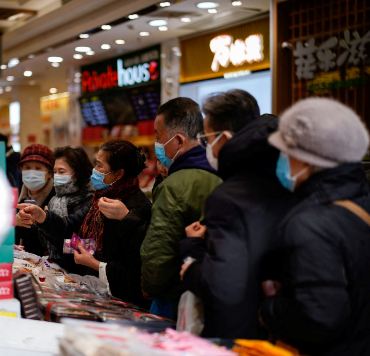ISLAMABAD, FEB 24 /DNA/ – China’s economic diplomacy is under strain because of intensified ‘alliances politics’ at the global level in general, and Asia-Pacific in particular. Geopolitical tensions are bound to impact negatively on China’s peaceful economic rise. Pakistan needs to be better prepared for future crises.
These were the views expressed by panelists at a roundtable discussion organized by the Institute of Regional Studies on ‘Challenges to China’s Economic Diplomacy’. The session was moderated by Ms. Nabila Jaffer, Ph.D Scholar and a Research Analyst at IRS.
Speaking on the occasion, Dr. Aneel Salman, Chair Economic Security, Islamabad Policy Research Institute, said that ‘while looking at the current situation, the way competition between US and China is unfolding, it is impossible to predict what kind of ‘world order’ would emerge in the future’, adding that, there was ‘chaos vs order’ because of contemporary shift in the ‘centre of economic gravity’ from global north to global south.
Dr. Salman was of the view that though China had emerged as the biggest player at the global level, it was yet to determine whether Beijing had the capacity to lead the world. Dr. Salman further said that the US’s encirclement of China and the ensuing trade war between them, the balloon incident, the issue of Taiwan, and the increasing strategic competition in Asia-Pacific, revealed that challenges for China’s economic diplomacy were many, and going to impact not only China, and the US, but the entire world as well, he said.
In the end, Dr Salman suggested that China needed to have a more cooperative diplomatic approach in response to criticism particularly from the west.
Dr Tahir Mumtaz Awan, Director, China Study Centre at COMSATS University, said that geopolitical tensions arising out of US-China strategic competition were posing serious challenges to China’s economic diplomacy. Apart, harmonizing with the private companies at home, the shift of manufacturing base to India, rising environmental and human rights concerns in reference to Beijing’s trade relations were also complicating China’s peaceful economic rise, he added.
Dr. Tahir Jamil, Assistant Professor at Area Study Centre for Africa, South and North America, QAU, said that China and the US were standing at odds where Beijing was criticized for not synchronizing with the international norms and values whereas, in the US, there was a democracy and had to respond to public sentiments, he added. This difference had been a problem for the US to deal with China, he further said. While echoing Dr. Salman’s viewpoint Dr. Jamil said that the world had yet to see what would be the future of ‘world order’ under China’s dominance as it was projected that China would emerge as the powerful actor at the global level in 2040. On the suggestive side, Dr. Jamil said that China had to work for a participatory economy for better appreciation and recognition both at domestic as well as global level.=DNA

















